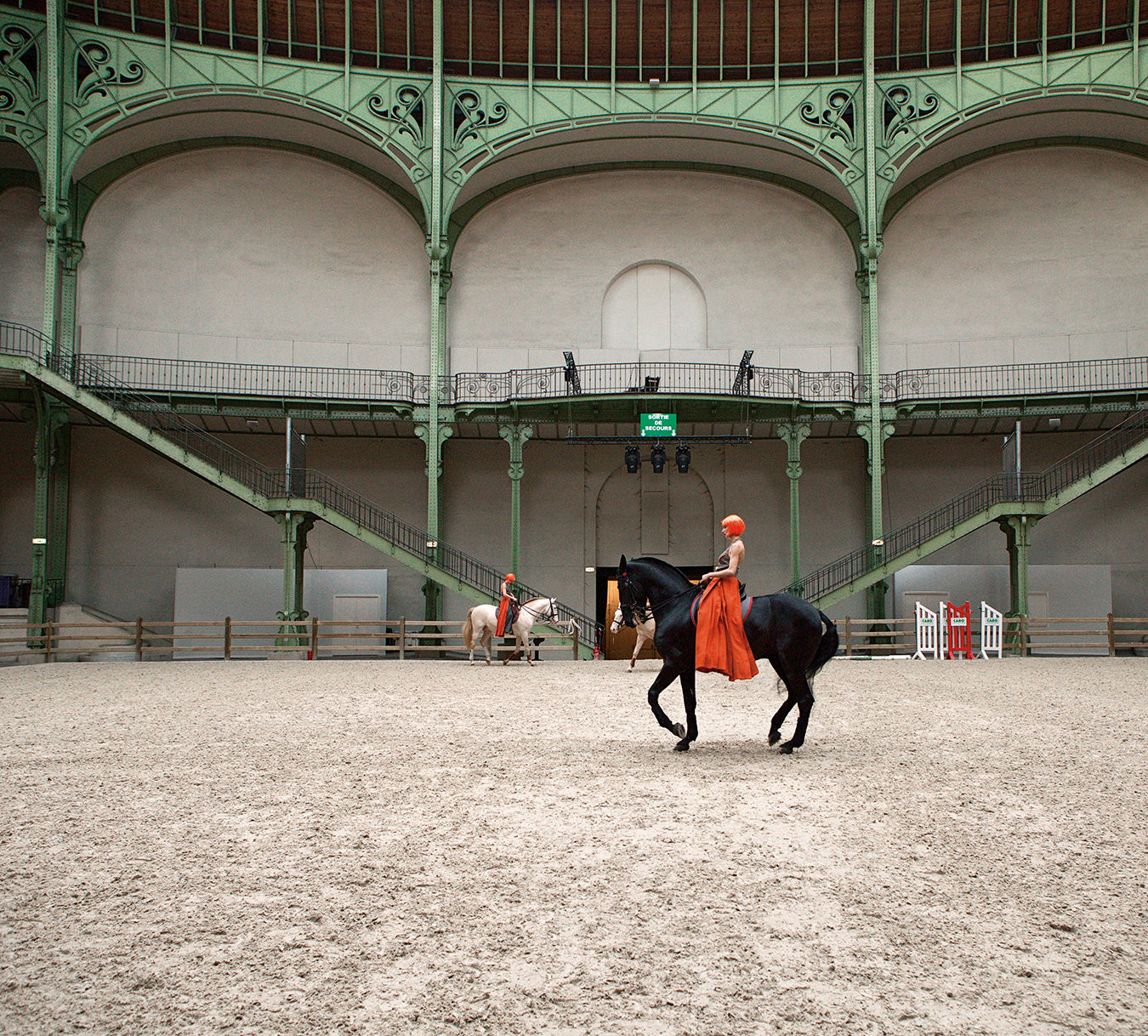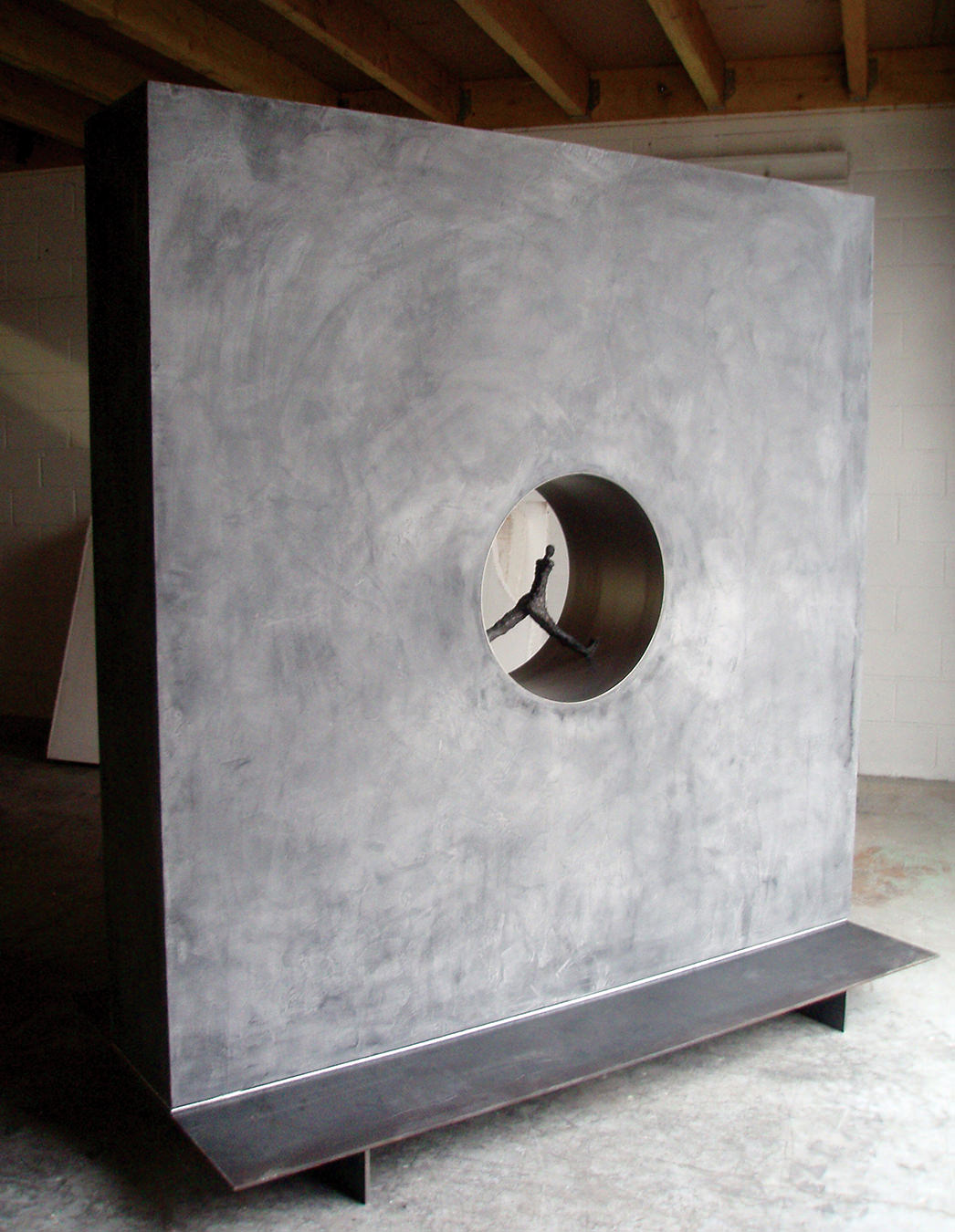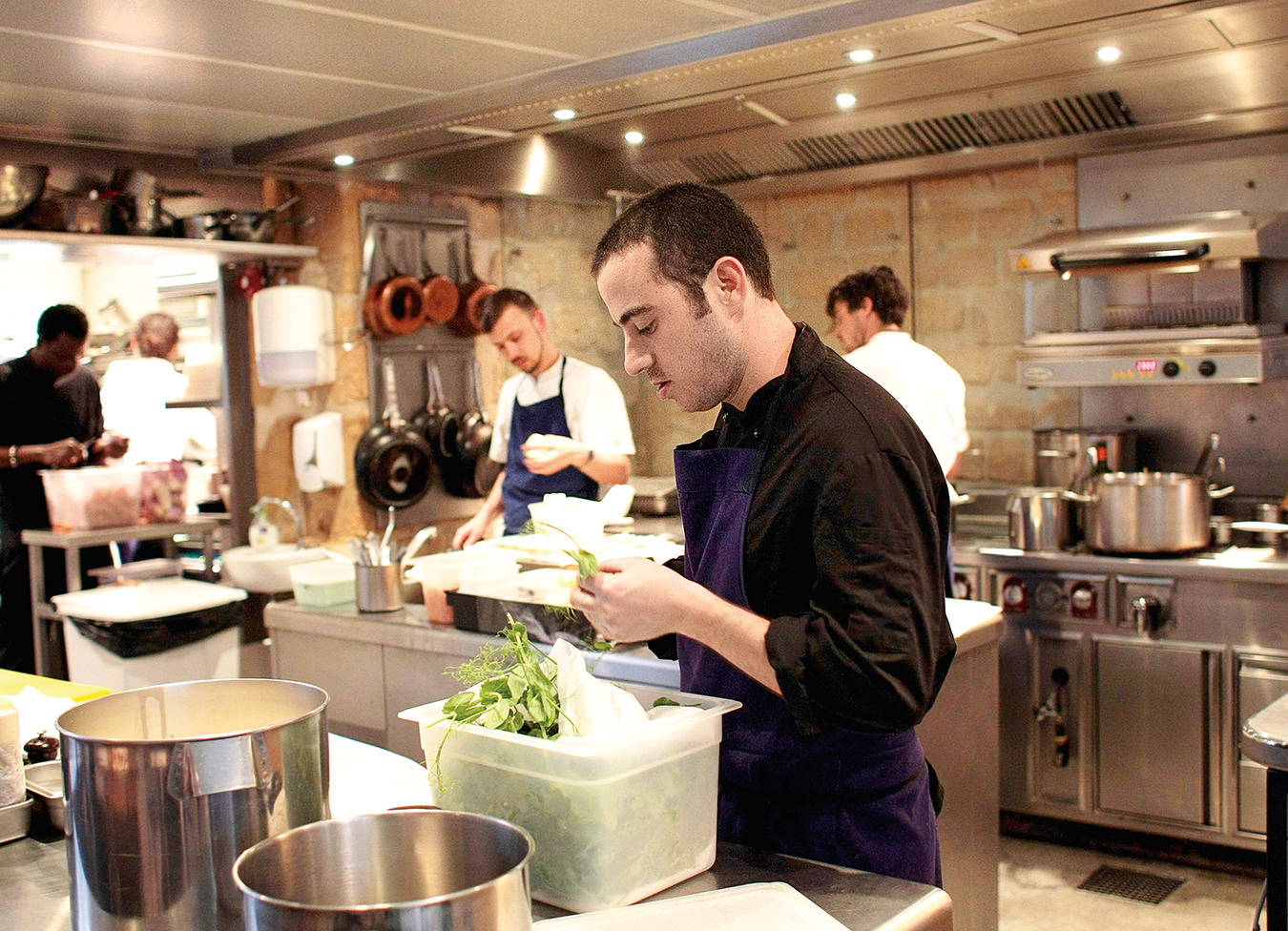-

Acclaimed food blogger and author David Lebovitz serves up French cuisine, one recipe and one story at a time.
-
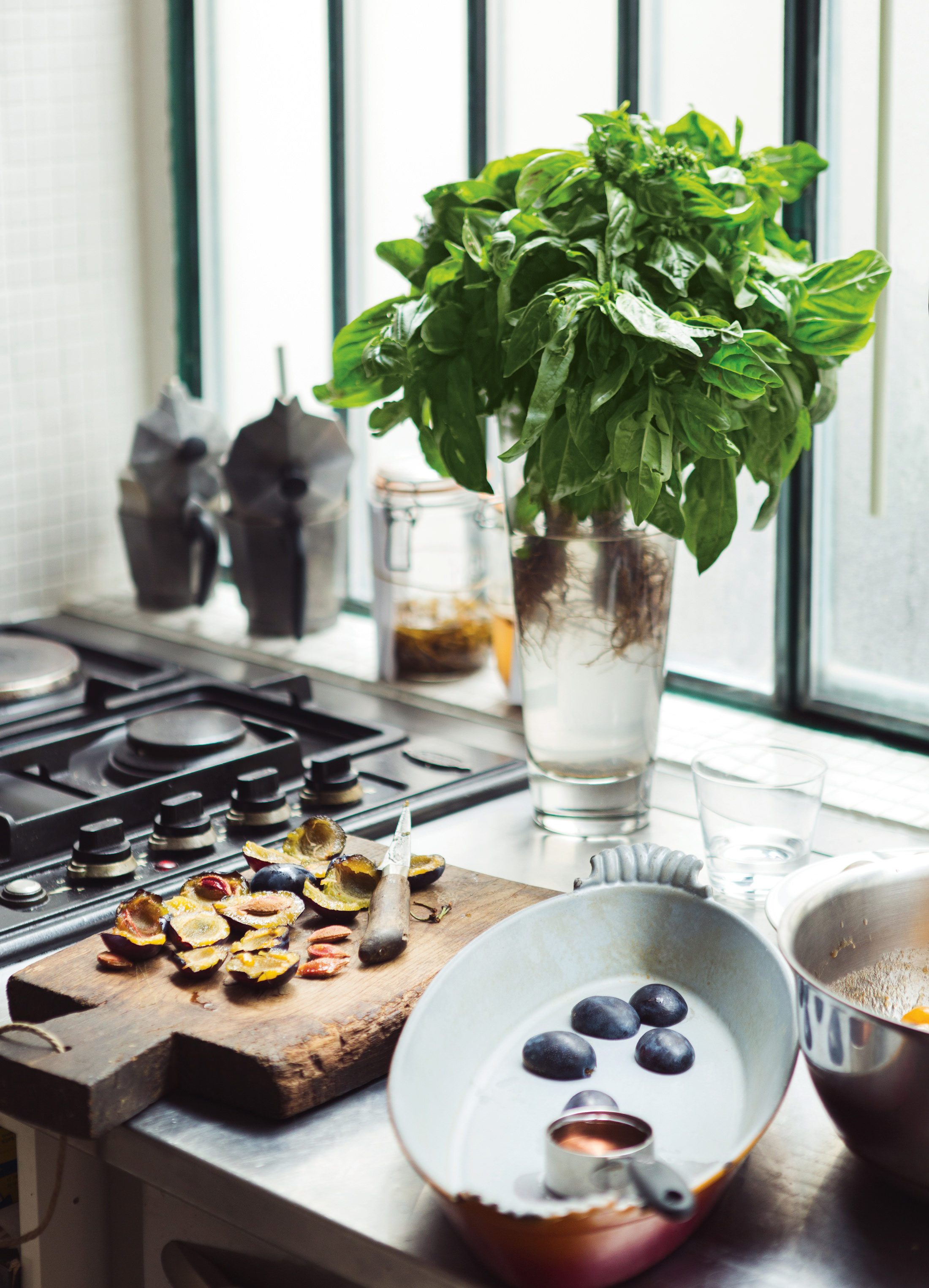
For many, Lebovitz has become a friend of sorts, someone who fills us in on his latest enviable foodie adventures before sharing his favourite new recipe.
-
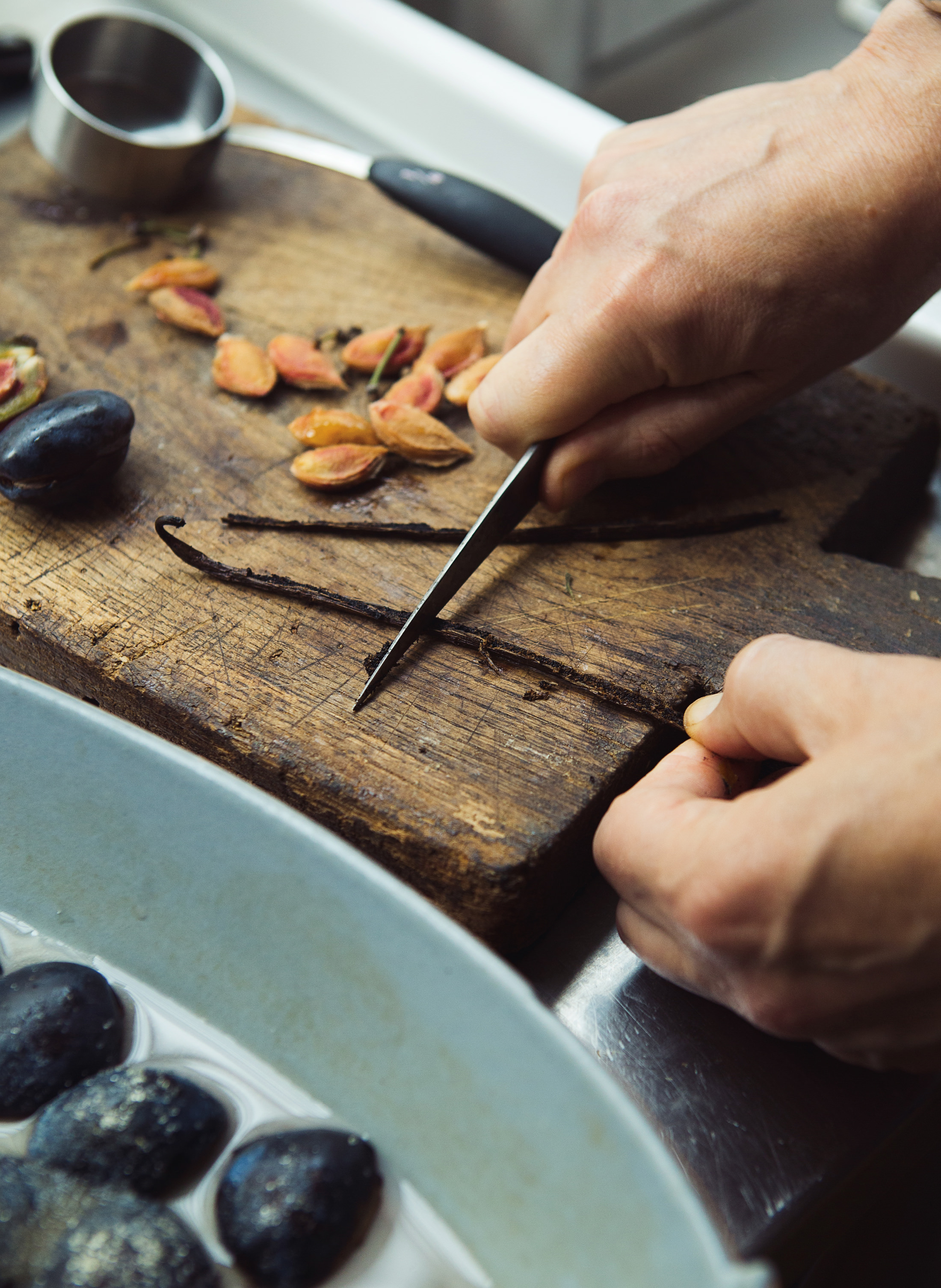
“For me, the story is the important part about food,” explains Lebovitz. “No one needs another vanilla ice cream recipe, but they like the story.”
-
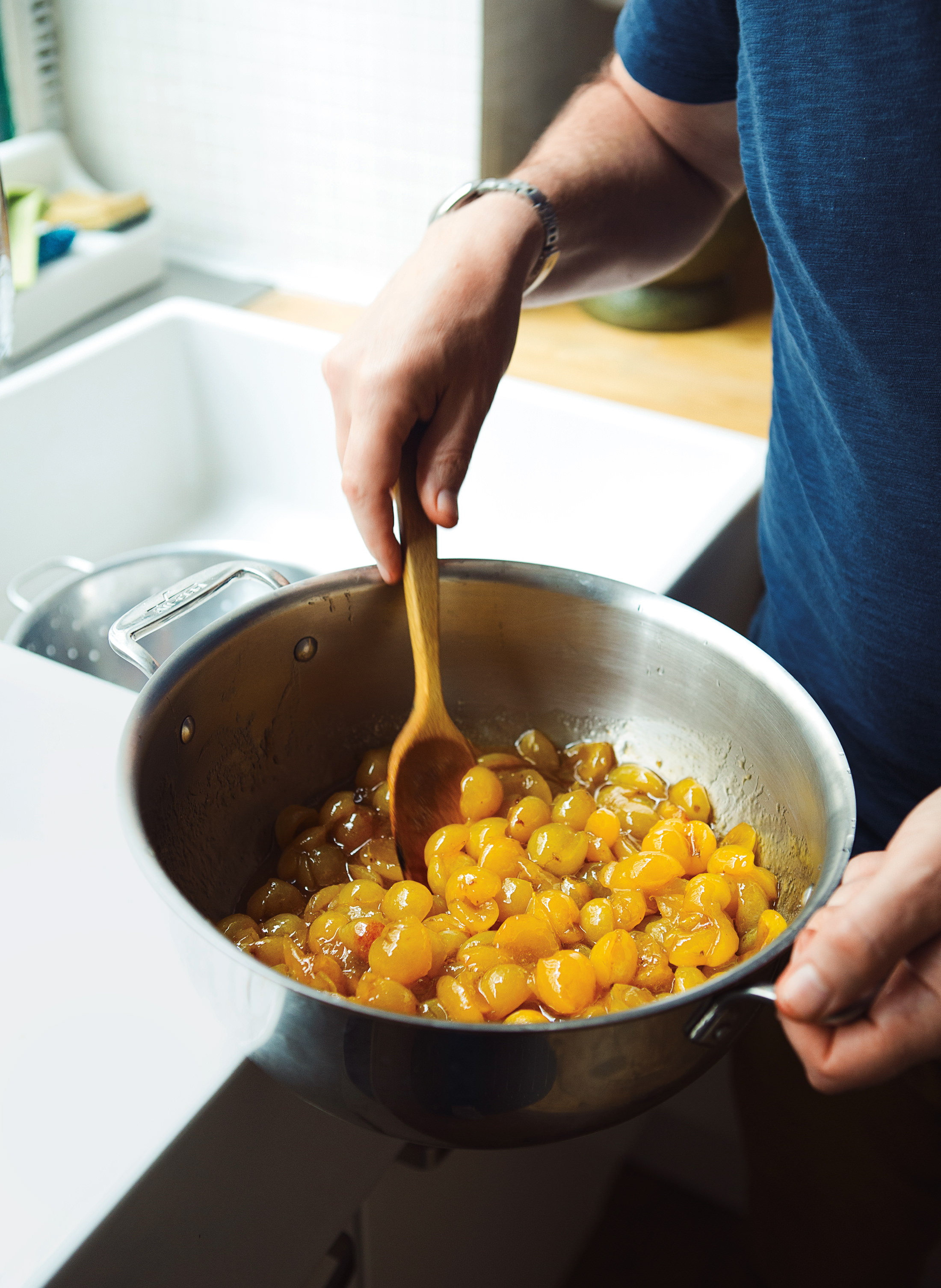
There are countless food bloggers on the net, but not only was Lebovitz one of the first, he is easily one of the most famous.
-

Having launched his website in 1999, before food blogs really even existed, you could argue that Lebovitz all but created the genre.
-

Lebovitz’s food blog is coming up on its 20-year anniversary.
-
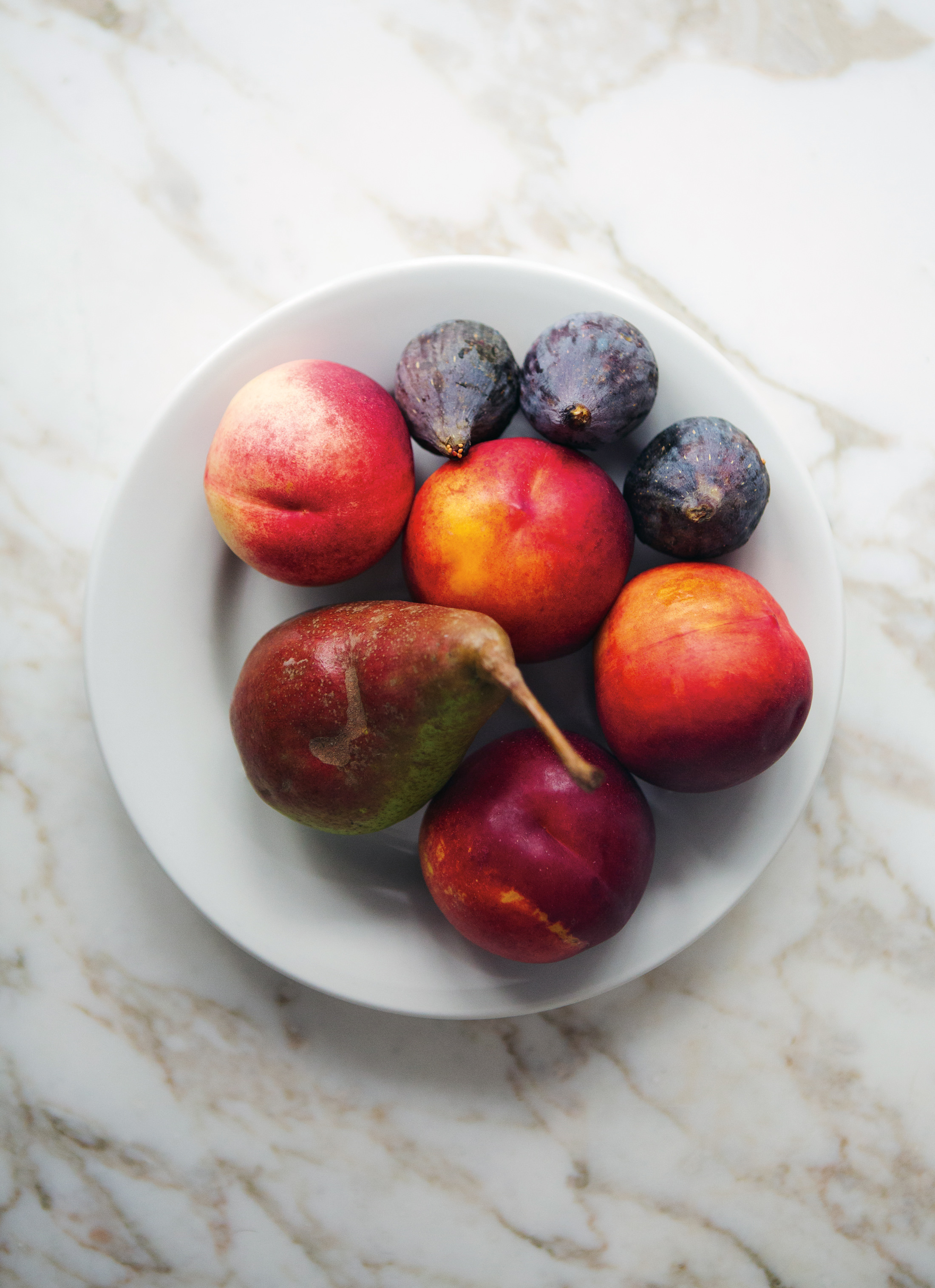
This past November, his eighth and latest book, L’Appart: The Delights and Disasters of Making My Paris Home
-

No doubt Lebovitz has earned a place in the pantheon of American food writers.
-
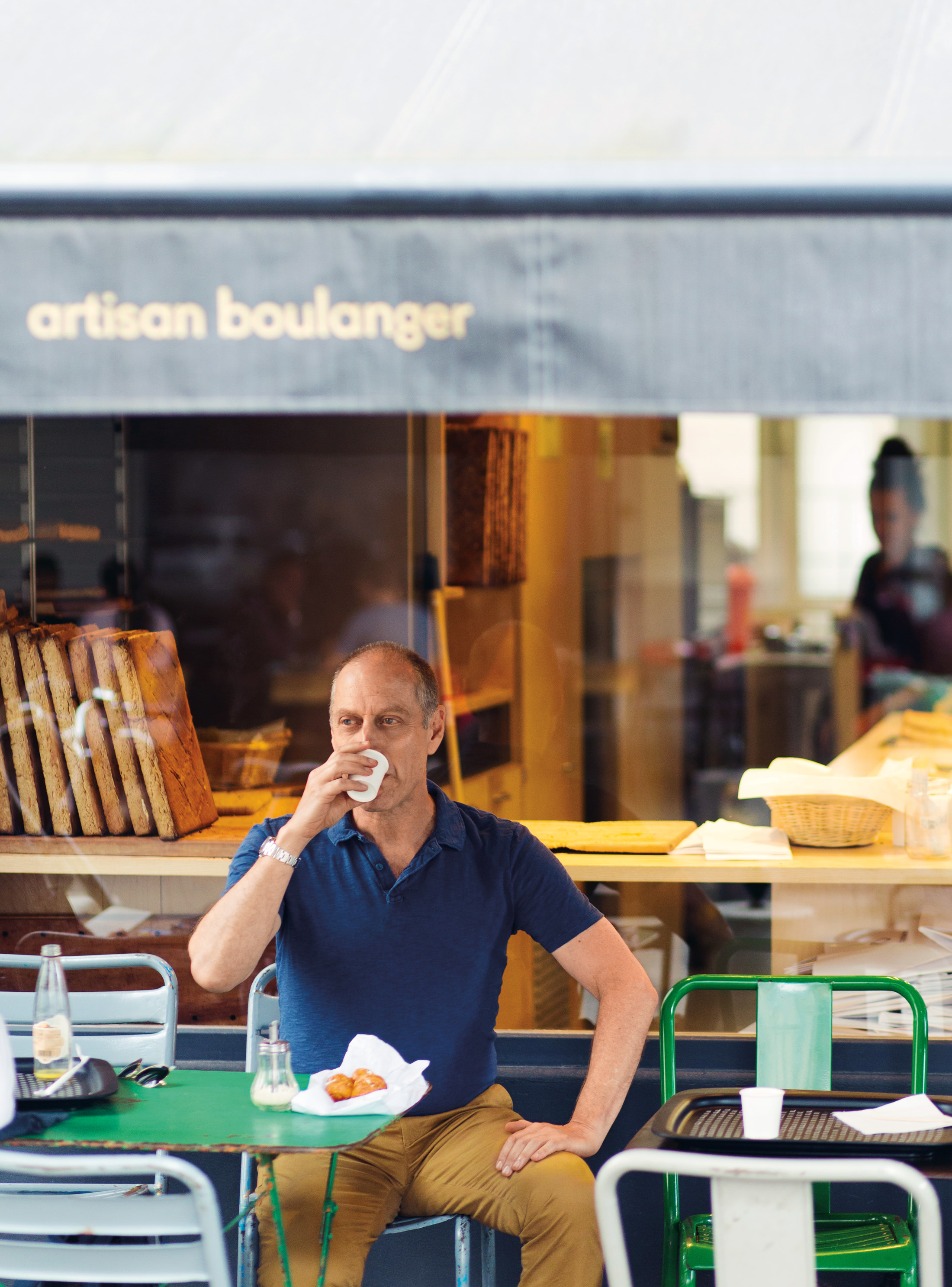
“I’m staying true to what I started. It’s the story of my life. I can do whatever I want. I can be free. It’s more fun.”
David Lebovitz
Paris, je t’aime... most of the time.
Few e-mails light up an inbox with as much sparkle as news of a fresh blog post from David Lebovitz. In a world filled with angst, natural disasters, and political strife, Lebovitz’s writing provides a delicious escape. One minute he’s visiting a market in Poitou-Charentes, the next he’s making Vietnamese caramel chicken, then he’s visiting a new chocolate shop in Paris’ ninth arrondissement. For many of us, Lebovitz has become a friend of sorts, someone who fills us in on his latest enviable foodie adventures before sharing his favourite new recipe for, say, lemon curd tarts or baked rice pudding with plum compote. Headed to Paris anytime soon? His restaurant and pastry shop recommendations are pure gold, and if you can, consider joining one of his tours. But book early—they sell out fast.
There are countless food bloggers on the net, but not only was Lebovitz one of the first, he is easily one of the most famous. His followers number not in the thousands, but in the hundreds of thousands. Having launched his website in 1999, before food blogs really even existed, you could argue that Lebovitz, 59, all but created the genre. And though many food blogs/websites have come and gone, davidlebovitz.com is coming up on its 20-year anniversary.
What’s the appeal? In a word: everything. The photos are sharp, the writing is witty, and the recipes are original, enticing, and well tested. Yet perhaps Lebovitz’s greatest asset is his humility coupled with humour, and most importantly a deep curiosity. Though this American-born and now 15-year Parisian resident has made the rounds of his adopted city’s food scene, he never seems to lose that spark of enthusiasm—and how great for fans who get to live the French food dream vicariously through him. “For me, the story is the important part about food,” explains Lebovitz. “No one needs another vanilla ice cream recipe, but they like the story about why I like it a certain way, so they want my vanilla ice cream.”
In a world filled with angst, natural disasters, and political strife, Lebovitz’s writing provides a delicious escape.
And you’d be right to want Lebovitz’s ice cream recipes because they’re terrific. Having worked as a pastry chef for 12 years at the iconic Berkeley restaurant Chez Panisse, Lebovitz specializes in desserts, chocolate, and ice cream in particular. He has authored seven cookbooks including Room for Dessert, The Great Book of Chocolate, Ready for Dessert, and The Perfect Scoop. His most personal, The Sweet Life in Paris: Delicious Adventures in the World’s Most Glorious—and Perplexing—City, deviated somewhat from the focus on sweets by including anecdotes on his French life, which hasn’t always been the American-in-Paris dream you would imagine. Following that came My Paris Kitchen, easily his most beautiful tome, which has a voice that brings you right into his 11th-arrondissement apartment kitchen. My Paris Kitchen is like the cream of the crop of his blog posts, condensed with accessible French recipes and great insider stories.
No doubt Lebovitz’s books rank among the best coming out of the strong American cookbook market today. But his website is still his baby. “My blog remains the focus of my work,” he says. “Other blogs focus on recipes, so they get monster traffic. We’re not a recipe site, so we don’t come up on Google enough. That has been challenging. But I’m staying true to what I started. It’s the story of my life. I can do whatever I want. I can be free. It’s more fun. No edits, no editors. That said, when I work on my blog, I find myself missing the structure and the editors of cookbooks.”
Entry into the City of Light for this Connecticut native was made through the common ground of food. Lebovitz tuned in quickly to what was happening in the Paris food scene, in search of what was new, what was hot (or as the French say, branché), or simply what was delicious. With surprisingly little food press coming out of France at the time, and international coverage often limited to Michelin-starred restaurant lists compiled by foreign journalists after quick visits, Lebovitz’s man-on-the-ground blog posts became an ever-evolving guide/cookbook for international gourmets eager for the latest and greatest.
Having launched his website in 1999, before food blogs really even existed, you could argue that Lebovitz all but created the genre.
Food blogging has led Lebovitz in new directions as well. Besides books, he is on Instagram and counts some 172,000 followers on Facebook, where he often produces Facebook Live videos of him cooking with food writer friends, reviewing cookbooks, or visiting Parisian shops and restaurant kitchens.
From the outside, many gourmands view Paris as a foodie Disneyland of sorts, with stacks of colourful Ladurée macarons, Pierre Hermé’s patisserie, and bistro suppers enjoyed at Brasserie Lipp or the Café de Flore. But Lebovitz has no such illusions. “I like Paris as a city with blemishes,” he says. “But what I like most about living here is the ease in acquiring really good things close by. There’s an excellent chocolate shop, cheese shop, and bakery right in my neighbourhood. And people here are attuned to food and cuisine.”
When asked what he misses most about the United States, Lebovitz says without hesitation, “The openness and the diversity, which is natural to Americans. But in the past three to five years, I have seen a change here in Paris. Young people are very influenced by what’s happening in the U.S. and Australia. The French pick up on things very quickly. You see restaurants in the 11th arrondissement where people are drinking out of Mason jars like they do in Brooklyn. So now I’m the American eating well, who is watching the French kids out the window with their McDonald’s bags and their supermarket sandwiches.”
“For me, the story is the important part about food,” explains Lebovitz. “No one needs another vanilla ice cream recipe, but they like the story about why I like it a certain way, so they want my vanilla ice cream.”
Despite the recent trend in Paris of gourmet hamburgers (“They sell for 12 to 15 euros here,” says Lebovitz) and an experiment with food truck culture (“Food trucks died out pretty fast,” he says. “French people just don’t eat like that”), Lebovitz sees some things moving in the right direction. “I hit the markets twice a week,” he explains, “and I see a greater variety of produce. That’s inspiring for me as a cook writing recipes for a book. There’s an explosion of ice cream shops here too, but my freezer is so full of homemade ice cream that I don’t really get to taste much.”
Lebovitz has also noticed a generational change in the Paris food scene, in particular a TV effect. Programs like Qui sera le prochain grand pâtissier? (“Who will be the next big pastry chef?”) have made stars of people like pastry chef Christophe Adam, known for his innovative take on éclairs. “Pierre Hermé did things differently, and that has sort of given young people a chance to try new things,” Lebovitz says. As for restaurants, it’s all about quality, “High-quality places here don’t close.” As for his own cooking style, quality is key as well. “I think I should be cooking something different, but I’m not. I’m ingredient based, not technique based. For me, cooking’s about flavours and food. I’m really good at showing people how to pick out a peach.”
Of late, cooking has taken a back seat to another of Lebovitz’s many talents: writing. This past November, his eighth and latest book, L’Appart: The Delights and Disasters of Making My Paris Home, was released, with a focus not so much on food as on the trials and tribulations of purchasing and renovating his Paris apartment. “After 10 years I decided to buy an apartment, and I didn’t realize what I was getting into,” he says. “The process is not at all like in America. You can’t believe what people tell you. It took me a few years to find a place, and the renovations didn’t go as well as I had hoped. It eventually took a turn, and things just got worse and worse.”
Of late, cooking has taken a back seat to another of Lebovitz’s many talents: writing.
Despite the misery (including seeing new electrical wiring melt before his eyes), Lebovitz came out unscathed—well, almost. “I felt like I had gone through something very profound,” he says. “The whole thing went downhill slowly. It was a shock, but an interesting one. I eventually found it all so absurd that it was almost funny. That toughness—there’s a beauty in it too. But then there was this kindness. When people come to your rescue, when people help you, it’s wonderful. I grew up a lot in Paris. I’m even more attached to this city now because of what happened.”
Perhaps another upside of his catastrophic renovation was the opportunity to distance himself a bit from his cookbook author persona. “Writing my memoir was a very intense experience for me,” he says. “I spent a lot of time hunched over my computer. I’d get up, have a nice breakfast—baguette, salted butter, coffee—and write. I’d go to Pilates at noon, come home, have a nice salad, and work some more. Sometimes I’d see people in the evening, and then I’d collapse.”
No doubt Lebovitz has earned a place in the pantheon of American food writers greatly influenced by Gallic cuisine, legendary authors like Julia Child, James Beard, M.F.K. Fisher, Richard Olney, and more recently Patricia Wells and Dorie Greenspan. It’s not much of a stretch to imagine Lebovitz as a sort of modern-day Olney. A highly regarded American who made Provence his home from the 1950s until he passed away in 1999, Olney (who was known to be difficult and abrasive, unlike the always endearing Lebovitz) wrote many classic and influential cookbooks on the topic of French country cooking, and is named as an influence by many American chefs and cookbook authors. Lebovitz also counts Olney as a huge inspiration. “I like the way he wrote about food,” he says. “People just don’t write that way anymore. The words he used to describe food were brilliant without ever being pretentious.”
Living in a city filled with cutting-edge chefs, pâtissiers, charcutiers, cheesemongers, and fishmongers, it’s fascinating that Lebovitz’s inspiration hails from a different era, long before food blogs ever existed. “My heroes today are the older people from the past. I’m seeing them in a different light these days. Their flaws are very interesting to me, very real. And I’m very traditional. Tradition is all about studying the test of time. I’m surprised and delighted by new things, but more often than not, I’m disappointed. Like all the hype over molecular cuisine—let’s wait 20 years and see what’s still around.”
Never miss a story, sign up for NUVO’s weekly newsletter, here.


